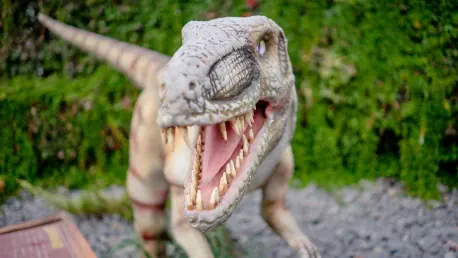Southern Adventist University has embarked on a groundbreaking project to expedite and enhance the classification of dinosaur teeth using artificial intelligence (AI). This collaboration between the university’s Biology and Allied Health Department and School of Computing leverages deep learning, a subset of AI that utilizes artificial neural networks to process data and solve complex problems. The initiative was conceived in the fall of 2022 by Harvey Alférez, PhD, the director of the Center for Innovation and Research in Computing (CIRC), and Keith Snyder, PhD, the chair of the Biology and Allied Health Department. Their objective was to explore the feasibility of using this technology for identifying images of dinosaur teeth accurately and efficiently.
Project Inception and Development
Conceptualization and Team Formation
Jacob Bahn, a graduate student in search of a master’s thesis project, joined the initiative in October 2022. With no prior experience in deep learning technology, Bahn was nonetheless intrigued by the project’s potential. The team set out to investigate whether AI could be trained to identify distinct features in dinosaur teeth, which could significantly streamline fossil classification. Their focus was on Pectinodon bakkeri teeth, a type of microfossil unearthed during digs in Wyoming. Snyder’s repository of 487 images of these teeth served as the primary data source for training the AI model.
Bahn’s involvement marked a crucial turning point in the project’s progression. Initially, he collected data from Snyder’s repository. The images were then analyzed and grouped based on distinct numerical features of the teeth. This analysis resulted in three primary categories, each representing specific characteristics. These categories, comprising 80% of Snyder’s images, were utilized to train a deep-learning model on a newly acquired GPU server at the School of Computing. The remaining 20% of the images were reserved for validating the model’s performance, providing a robust framework to gauge its accuracy and reliability.
AI Model Training and Validation
The project was funded by the Faith and Science Council of the General Conference of Seventh-day Adventists and contributions from Southern’s 2022 Giving Day. The initiative underwent rigorous validation to ensure its effectiveness. The deep-learning model demonstrated promising results, achieving a 71% accuracy rate, which was corroborated by similar metrics in precision, recall, and F1-score. These results underscored the model’s reliability in identifying the specific features of Pectinodon bakkeri teeth. This, however, was only the beginning, as the team recognized the need for further refinement and validation.
Currently, Alférez, Bahn, and Snyder are working to fine-tune Bahn’s original thesis for peer review, with hopes of publishing their findings in an academic journal. This step is crucial for disseminating their innovative approach to a broader scientific community, inviting collaboration and potentially catalyzing further advancements in AI applications in paleontology. The validation results confirmed the project’s feasibility and provided a strong foundation for its expansion and future applications.
Interdisciplinary Collaboration and Future Prospects
Synergy Between Computing and Biology
The intersection of computing and biology facilitated by this project spotlights a novel collaboration at Southern Adventist University. It highlights the synergy between the extensive data management capabilities of the computing faculty and the biological expertise necessary for accurate fossil identification. This collaboration has set a precedent for future interdisciplinary endeavors, aiming to enrich student learning experiences and prepare them for careers where AI technologies are increasingly in demand.
Beyond fossil identification, the initiative paves the way for potential applications in various fields. The methodologies and insights gained can extend to other areas of biology and medicine, where accurate classification and analysis of complex data are paramount. This project has underscored the immense potential of AI to address intricate biological questions, making significant strides towards integrating technology into traditional biological research.
Implications for Student Learning and Career Preparation
Southern Adventist University has launched an innovative project intended to speed up and improve the classification of dinosaur teeth by leveraging artificial intelligence (AI). This initiative is a collaboration between the university’s Biology and Allied Health Department and the School of Computing. They are using deep learning, a subset of AI that employs artificial neural networks to analyze data and solve complex issues, for this task. The project began in the fall of 2022 and was envisioned by Harvey Alférez, PhD, the director of the Center for Innovation and Research in Computing (CIRC), along with Keith Snyder, PhD, the chair of the Biology and Allied Health Department. Their goal was to determine if this technology could be used to identify images of dinosaur teeth with accuracy and efficiency. This project aims to revolutionize paleontological research by making the identification process quicker and more precise, potentially leading to new discoveries and a better understanding of prehistoric life.









